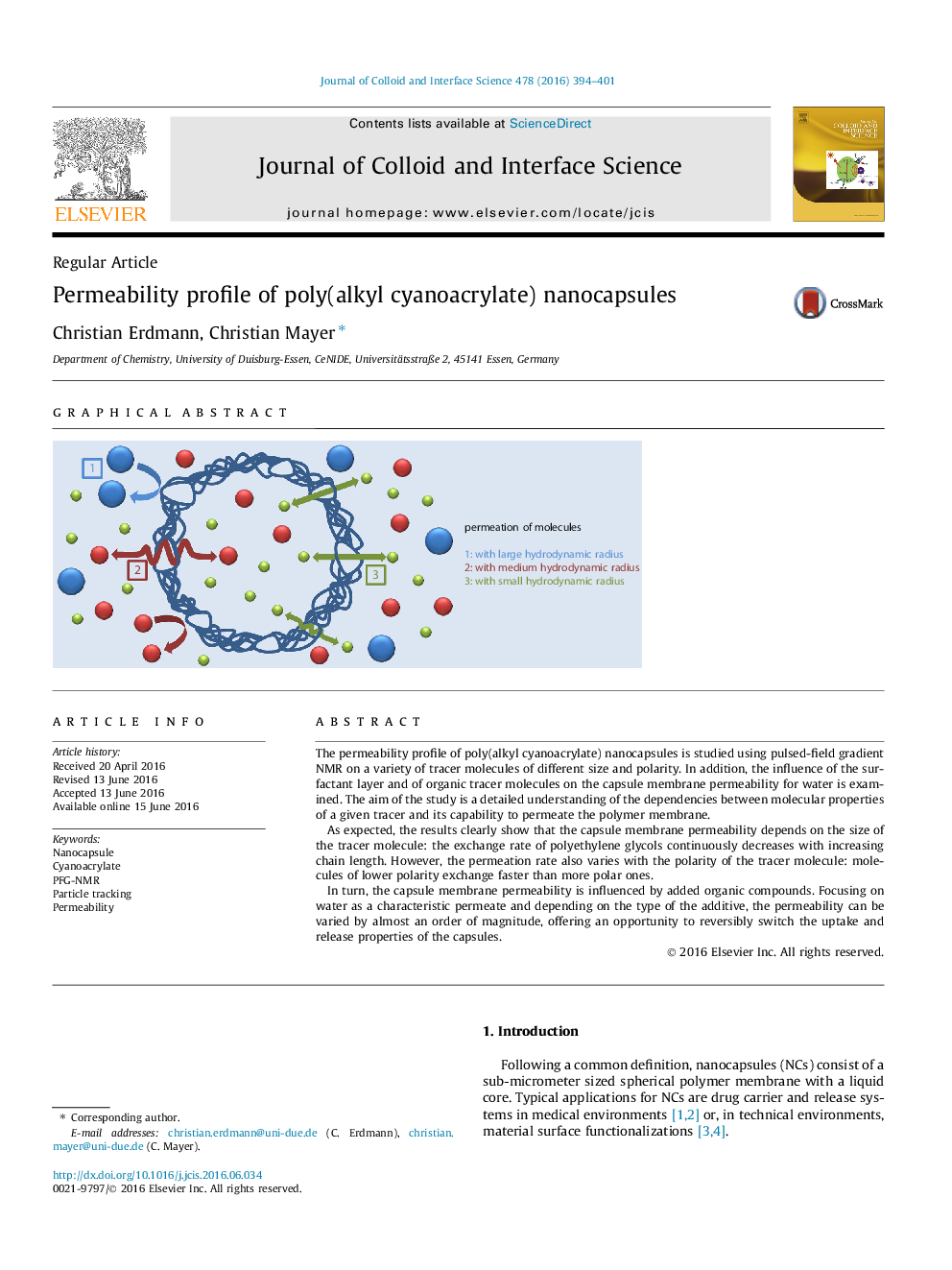| Article ID | Journal | Published Year | Pages | File Type |
|---|---|---|---|---|
| 606216 | Journal of Colloid and Interface Science | 2016 | 8 Pages |
The permeability profile of poly(alkyl cyanoacrylate) nanocapsules is studied using pulsed-field gradient NMR on a variety of tracer molecules of different size and polarity. In addition, the influence of the surfactant layer and of organic tracer molecules on the capsule membrane permeability for water is examined. The aim of the study is a detailed understanding of the dependencies between molecular properties of a given tracer and its capability to permeate the polymer membrane.As expected, the results clearly show that the capsule membrane permeability depends on the size of the tracer molecule: the exchange rate of polyethylene glycols continuously decreases with increasing chain length. However, the permeation rate also varies with the polarity of the tracer molecule: molecules of lower polarity exchange faster than more polar ones.In turn, the capsule membrane permeability is influenced by added organic compounds. Focusing on water as a characteristic permeate and depending on the type of the additive, the permeability can be varied by almost an order of magnitude, offering an opportunity to reversibly switch the uptake and release properties of the capsules.
Graphical abstractFigure optionsDownload full-size imageDownload high-quality image (178 K)Download as PowerPoint slide
